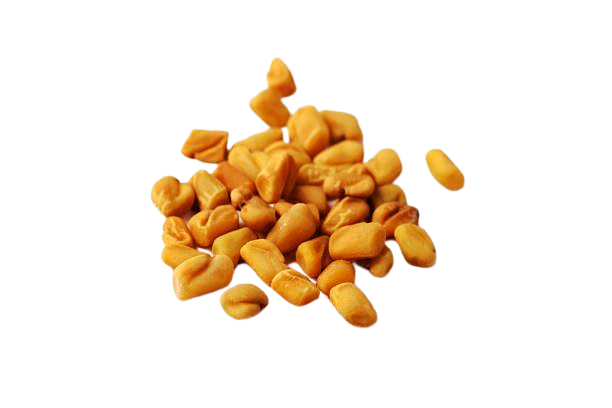Introduction: Everyone desires strong, shiny, and beautiful hair. While there are numerous hair care products available in the market, some natural remedies can work wonders too. Methi seeds, also known as fenugreek seeds, are a powerhouse of nutrients that can promote hair growth, prevent hair loss, and improve overall hair health. In this article, we will explore the benefits of methi seeds for hair and how you can incorporate them into your hair care routine.
Let’s delve into the secrets of this amazing natural ingredient!
Section 1: Understanding Methi Seeds for Hair
Methi seeds are tiny, golden seeds derived from the fenugreek plant. They have been used for centuries in traditional medicine to address various health and beauty concerns, including hair problems. The seeds are rich in protein, iron, vitamins, and other essential nutrients that nourish the hair follicles and promote healthy hair growth.
Section 2: Promotes Hair Growth and Reduces Hair Loss
Methi seeds are known to stimulate hair growth and combat hair loss. They contain hormones that help enhance hair follicle health, leading to improved hair growth. Additionally, the proteins and amino acids present in methi seeds strengthen the hair shaft, reducing breakage and preventing hair loss. Regular use of methi seeds can contribute to thicker and fuller hair.
Section 3: Conditions and Softens Hair
Dry and frizzy hair can be difficult to manage. Methi seeds can come to the rescue by providing deep conditioning and hydration to your hair. The mucilage present in the seeds acts as a natural conditioner, making your hair smooth, soft, and more manageable. Using methi seed paste or oil can help restore moisture to dry strands and add a healthy shine to your locks.
Section 4: Combats Dandruff and Scalp Issues
Dandruff and scalp infections can be annoying and embarrassing. Methi seeds have antifungal and antibacterial properties that can help combat these issues effectively. Applying methi seed paste or oil to the scalp can help soothe irritation, reduce itchiness, and control dandruff. A healthy and nourished scalp is vital for maintaining healthy hair.
Section 5: How to Use Methi Seeds for Hair
There are different ways to incorporate methi seeds into your hair care routine. Here are a few simple methods:
- Methi Seed Hair Mask: Soak methi seeds overnight, grind them into a paste, and mix with yogurt or coconut milk. Apply the mixture to your scalp and hair, leave it on for 30-60 minutes, and rinse thoroughly.
- Methi Seed Hair Oil: Infuse methi seeds in coconut oil or olive oil for a few days. Warm the oil and massage it onto your scalp and hair. Leave it on overnight or for a few hours before shampooing.
- Methi Seed Rinse: Boil methi seeds in water, strain the liquid, and use it as a final rinse after shampooing. This can help condition your hair and add shine.
Section 6: Other Benefits of Methi Seeds for Hair
Apart from promoting hair growth and addressing common hair concerns, methi seeds offer additional benefits for your hair:
- Strengthens Hair Roots: Methi seeds contain lecithin, an essential nutrient that nourishes and strengthens the hair roots. This helps in reducing hair fall and promoting healthy hair growth from the roots.
- Adds Volume to Hair: Thin and limp hair can be transformed with the use of methi seeds. The proteins and nutrients present in methi seeds help add volume and thickness to your hair, giving it a fuller and more voluminous appearance.
- Prevents Premature Graying: Methi seeds are rich in antioxidants that help combat free radicals and oxidative stress, which are major contributors to premature graying of hair. Regular use of methi seeds can help maintain the natural color of your hair and delay the onset of graying.
- Improves Scalp Circulation: Massaging your scalp with methi seed oil or paste can improve blood circulation, which is crucial for the health of your hair follicles. Better circulation ensures that the hair follicles receive an adequate supply of nutrients and oxygen, promoting healthy hair growth.
- Reduces Scalp Inflammation: Methi seeds possess anti-inflammatory properties that can help soothe an inflamed scalp. This is beneficial for those who experience scalp conditions like scalp psoriasis, eczema, or dermatitis, as it helps reduce itching and irritation.
Section 7: Tips for Using Methi Seeds for Hair
To make the most of methi seeds for your hair, keep the following tips in mind:
- Conduct a patch test before using methi seeds to check for any allergic reactions.
- Choose fresh and high-quality methi seeds to ensure maximum potency and effectiveness.
- Soak the seeds overnight or for at least 6-8 hours to soften them and make them easier to grind or use in other preparations.
- When using methi seed paste or oil, ensure that you apply it thoroughly to your scalp and hair, focusing on the roots and tips.
- Be patient and consistent with your methi seed hair care routine. Results may take time, so regular usage is key to seeing improvements in your hair health.
- Combine the use of methi seeds with a balanced diet, adequate hydration, and a healthy lifestyle for optimal results. A well-nourished body promotes healthy hair growth.
Conclusion:
Methi seeds are a natural and effective solution for promoting healthy hair. Their rich nutrient profile, including proteins, vitamins, and antioxidants, provides numerous benefits such as promoting hair growth, reducing hair loss, conditioning the hair, and addressing scalp issues. By incorporating methi seeds into your hair care routine and following the tips mentioned, you can achieve strong, shiny, and beautiful hair. Embrace the power of methi seeds and enjoy the transformation of your hair!


Pingback: Unveiling the Incredible Fenugreek Benefits: Nature’s Superfood - carewithayurveda.com